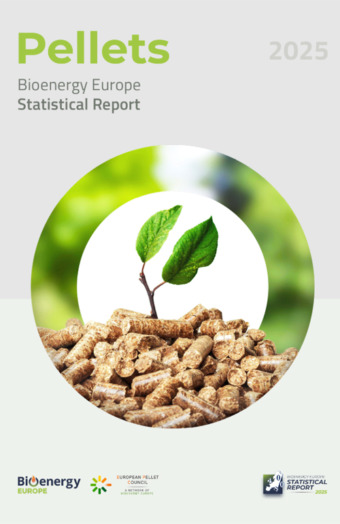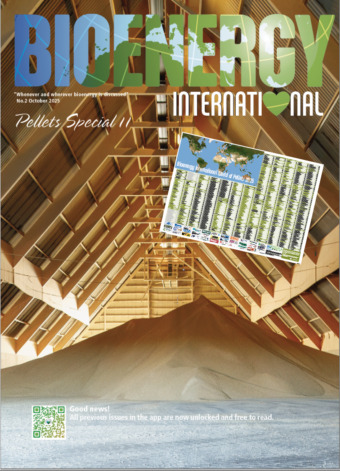Bioenergy Europe has released its 2025 Pellets Statistical Report. The annual report covers the latest trends in global and European pellet production, consumption, trade, and the sales of pellet-based heating appliances.
According to the report, global pellet production remained broadly stable in 2024 at 48.3 million tonnes, while global consumption exceeded 45 million tonnes for the first time.
Despite some challenges, including a reduction in heat demand due to climate change, Europe remains the world’s largest wood pellet-producing and consuming region by far.
Amid the broader trends, the report highlights the decisive factor of public support shaping the transition towards a defossilised heating system in Europe.
The data shows that, where there is political will and clear financial support for the installation of new appliances, renewable heat thrives. Consumers need stability. Without consistent support schemes, even established markets can falter, said Jérémie Geelen, Market Intelligence Director at Bioenergy Europe.
Divergent pellet appliance markets
Stove and boiler sales across Europe in 2024 reveal stark contrasts depending on the policy environment.

Austria provides a standout example: after a severe dip in 2023, the introduction of new federal and regional subsidies in 2024 for the phasing out of fossil fuels triggered a market rebound.
In Poland, the Clean Air Program has proven instrumental in maintaining momentum. The program’s financial incentives have encouraged households to replace outdated systems, many of them coal-fired, with cleaner alternatives, supporting Poland’s transition to a more renewable heating system.
In contrast, Germany, Europe’s largest pellet appliance market, saw sales of heating systems based on renewable energy fall sharply for the second year running.
This collapse mirrors broader uncertainty around Germany’s heating transition and shifting policy priorities.
France tells a similar story, where frequent changes to the national energy policies in 2024 impacted consumer confidence.
An integral part of the renewable heat mix
Still, over 5.6 million European households are estimated to rely on wood pellets for their heating needs, significantly more households when encompassing all types of biomass such as fuelwood, briquettes, woodchips, or biomethane aka renewable natural gas (RNG), and more still when biomass- or RNG-fired district heating systems are taken into consideration.

In 2024, ENplus-certified pellets were estimated to correspond to 75 percent of the European pellet heating market, and certified pellet traders handled a record 7.5 million tonnes, reinforcing the status of ENplus as the leading global fuel quality certification system for wood pellets.
Despite challenging market conditions, the number of ENplus-certified producers and traders increased to 686 and 608, respectively.
Bioenergy Europe calls on policymakers across Europe to ensure predictability and support the adoption of renewable heating.
Pellet appliances are a proven, accessible solution to help meet the EU’s Heating and Cooling Strategy goals.



